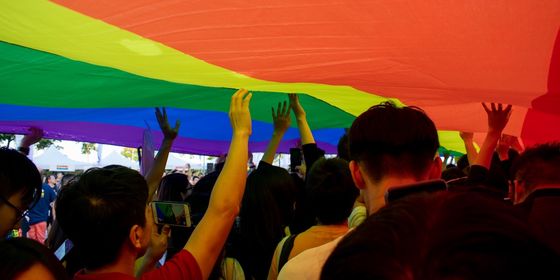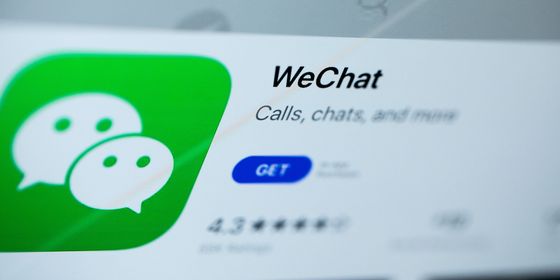Praise groups—and their counterpart, scold groups—are the latest millennial strategy against burnout
It’s hard enough for millennials working a “9-9-6” office existence (9 a.m. to 9 p.m., six days a week) without a manager bothering to praise their efforts. It’s even worse when entitled colleagues get to enjoy all the glory.
Frustrated with everyday injustice, netizens are supposedly turning to WeChat and Weibo to vent their spleen at—or bask in the praise of—strangers. The practice seems odd even to other users on the network but, for those who participate in them, “scolding” or “praising” groups are said to offer a brief but importance respite from a litany of stress.
Reports about the popularity of so-called kua kua (夸夸, praise) groups began circulating earlier this month. Members submit their concerns or grievances—anything from “I’m sleeping too much” to “my boyfriend never calls”—so others can shower them with encouraging messages or compliments (“you’re the best…you deserve that nap!”). Although most groups are invite-only, members typically know nothing about the person they’re praising; there are also services where one can pay between 50 and 100 RMB (15 USD) for membership in a group of professional sycophants.
If positive energy doesn’t quite cut it, there are alternatives: Viewers of hit prime-time soap All is Well have developed such passionate hate against its three male leads—cowardly patriarch Mr. Su, his selfish careerist older son, and spoiled younger son—that they have joined “scold groups” (骂人群), letting off steam about who or whatever it is that’s annoying them in any particular episode. Most viewers identify with the show’s heroine, neglected daughter Su Mingyu (played by fan favorite Yao Chen), and use the groups to defend her while verbally attacking her fictional father and brothers.

The male Su clan are such a slappable crew that viewers are prepared to pay for a chance to scold them
Not surprisingly, this trend has been quickly monetized, with Taobao vendors role-playing as one of the characters in order for buyers to “curse the Su family father and sons” (怒骂苏家三父子). (This is different from “professional cursers,” people paid to insult others with threatening text messages or phone calls, and can face charges of “violating public morality” if caught.)
Viewers wanting to take their frustrations out on the Su family can pay to be added to a “curse group” formed against the TV chauvinists, advertised with lines such as “Don’t you hate the Su’s family father and two sons? I hate them too. Come on, vent a little!” Other vendors simply change their Weibo handles to an avatar of the Su villains, so others can fling insults at them. Sounds weird? As one invitee told the SCMP, it’s more about finding “someone to listen to you carefully…everyone is busy and cold and they pretend to be indifferent to the people they like. This platform belongs to you.”
Although praise and scold groups have lately caught the media’s attention, they’re really nothing new. Xi’an’s Huashang News already reported on praise groups, or “student support communities,” being formed at Xi’an Jiaotong University in 2014.
Meanwhile, the offline equivalent—rage rooms, where clients are given protective gear and a baseball bat and smash up objects to release anger—have been reported as a recent fad in Beijing, they too have been around for years. The phenomenon started in Tokyo in 2008, and a Shenyang shopping mall offered female shoppers a “rage cage” back in 2010.
Ultimately, these novel online communities are rooted in something familiar: The stress of being young and relatively helpless. The issue of millennial burnout has been widely reported in many countries, and there’s an argument to make that soaring house prices, coupled with societal pressure to raise a family and a punitive (but, often, poorly remunerated) work ethic make the stresses of Chinese youth uniquely difficult. Digital band-aids may relieve some of that pressure temporarily, but they are a reminder that, even without struggle sessions or food shortages, many Chinese millennials feel more voiceless and vulnerable than ever.
Cover image from VCG












